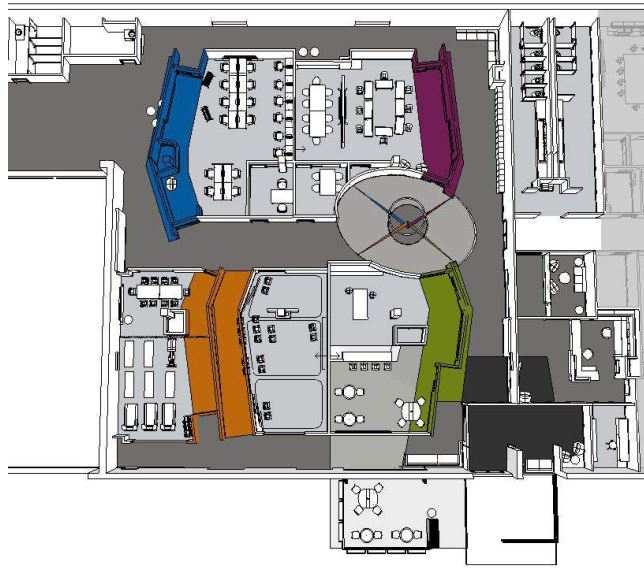Throughout the US, hundreds of thousands of people with moderate to severe disabilities participate in sheltered workshops or other “segregated” day programs offered by human service nonprofits. Under the supervision and with guidance from these nonprofits, they perform “piece-work” jobs such as assembling, packing, sorting, collating and mailing preparation.
While this business model has worked for years, nonprofits now face a growing demand from these individuals as well as their family members to evolve from sheltered workshops into community-based work programs.
The timing could not be better. Job placements at sheltered workshops are becoming more limited due to the passage of the 2014 Workforce Innovation and Opportunity Act, which instead promotes community-based employment for people with disabilities. The closure of these workshops is now resulting in a new, untapped labor force -- individuals with disabilities.

Ben working at Superior Ambulance
Fortunately, there’s a growing demand in the marketplace for this labor pool from such major employers as Walgreens, Office Depot and UPS. They and other visionary business leaders recognize that people with disabilities make excellent employees for jobs that require repetitive tasks and positions that tend to experience a high turnover rate.
These issues have driven Aspire Chicago to evolve as well. Founded in 1960, Aspire is recognized throughout Illinois as a leader in providing bold, pioneering and uncompromising services to children and adults with developmental disabilities, their families and the Chicago community. Today, we’re one of the most innovative human service nonprofits in the Midwest, with more than 200 dedicated team members serving nearly 1,000 kids and adults every year.
Among our pioneering programs is Aspire CareerLink, a revolutionary initiative that breaks down the barriers facing adults with disabilities in the workplace by providing them with real-life, on-the-job training in the retail and warehouse distribution fields. Since its launch in 2014, this one-of-a-kind job-training program, whose model was created in partnership with Office Depot, has been very successful, enabling more than a dozen individuals to gain the practical and social skills needed to work in the community and experience the sense of accomplishment that comes from earning a paycheck.
Aspire CareerLink’s teachings have been so spot-on that more than 90 percent of our graduates have gone on to attain full or part-time positions in the community with well-respected employers. Eighty percent of those employed have maintained consistent employment for one year or more. Given that most of the Aspire CareerLink graduates had never been employed before, this remarkable success proves our model of using simulated workspaces in partnership with local and national companies works.
Now Aspire is taking the next step. Thanks to this program’s success, we will now address the next generation of workers just starting out in their careers -- high school students with disabilities graduating throughout Illinois this spring. Like their peers without disabilities, these young people are yearning not only for new experiences and opportunities. They want to work in the community, not in sheltered, segregated workshops.
And that can be a challenge. According to the 2014 Cornell University Disability Status Reports, the Illinois employment rate among working-age people with disabilities is just 36 percent, compared to 78 percent for people without disabilities. This disparity is due not to a lack of desire, but to the severely limited access that individuals with disabilities have to quality education and job training.

What will change these percentages, we believe, is Aspire Career Academy (ACA). Scheduled to open this spring, ACA is a unique, first-of-its kind learning environment that will offer job training for young adults with disabilities, along with multiple career paths in the industries that can most benefit from this untapped workforce. These industries range from food service, culinary, hospitality and healthcare, office skills, information technology, retail and warehousing/supply chain.
At ACA, we project serving 180 individuals during our first five years of operation, and placing 113 of them into competitively employed positions. Each graduate who secures employment will also receive on-site job coaching from Aspire for at least 90 days. Their employers will be coached as well on how to better support employees with disabilities, ultimately contributing to long-term job retention.
By achieving true community-based employment with a competitive wage, people with disabilities can experience the higher quality of life and increased self-determination that comes from success in their work, comfort in their home and satisfaction across all stages of their lives.
Our broader goal for launching ACA is to contribute to the body of knowledge on creating true community-based employment options for people with disabilities. We welcome the opportunity to collaborate with like-minded agencies and pioneering employers, share our findings, help identify best practices and explore how community-based employment positively impacts individuals with disabilities as well as the companies that employ them.


